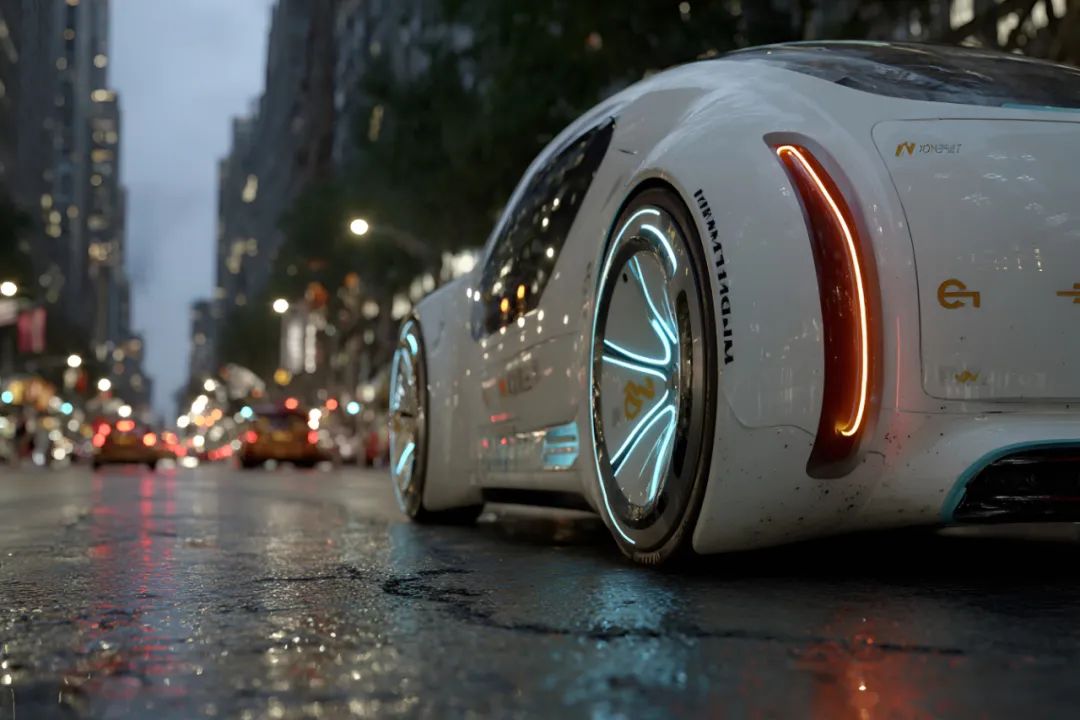European Auto Market: BYD Overtakes Tesla in Monthly Sales, Signaling Accelerated Market Shift Towards Hybrid Vehicles
![]() 06/06 2025
06/06 2025
![]() 690
690
According to the latest figures from the European Automobile Manufacturers Association, April 2025 witnessed 925,359 new car registrations in the EU, marking a 1.3% year-on-year increase. This represents the first positive annual growth in monthly sales since 2025, indicating a promising recovery in the automotive industry.
Despite a general decline in car sales during the first quarter, new car registrations in the EU from January to April 2025 fell by 1.2% year-on-year. However, the market structure is undergoing a rapid transformation, with gasoline car registrations dropping sharply by 20.6% and diesel cars' market share decreasing to 38.2%. Conversely, sales of new energy vehicles, including pure electric vehicles (EVs), are on the rise, leading to an improved market share.
Specifically, in the first four months, EU registrations of pure EVs reached 558,262, a 26.4% year-on-year increase, accounting for 15.3% of the market, up 3.3 percentage points from the previous year. Germany, Belgium, and the Netherlands emerged as key drivers of this growth. Plug-in hybrid vehicle registrations stood at 287,850, a 7.8% increase, with a 7.9% market share, primarily fueled by sales in major markets like Germany and Spain. Hybrid vehicles (HEV) saw a surge in registrations, totaling 1,285,486 in the first four months, a 20.8% year-on-year increase, capturing 35.3% of the market and becoming one of the most popular vehicle types in the EU.

Hybrid vehicles have become the preferred choice for EU consumers transitioning from traditional fuel vehicles due to their lack of dependence on charging infrastructure, improved fuel economy, and affordable prices. Their 35.3% market share underscores consumers' acceptance and preference for these vehicles. While pure EV sales are growing rapidly, they are still hampered by energy replenishment challenges and affordability issues, resulting in a market share significantly below the EU's target. As charging infrastructure expands, the share of pure EVs may continue to rise, but hybrids are expected to remain dominant in the short term.
Among EU countries, Germany led in total registrations, pure EV registrations, plug-in hybrid registrations, and hybrid vehicle registrations. Besides Germany, France, and the UK, which are traditionally large markets, Italy excelled in hybrid vehicle sales, ranking third, while Spain shone in plug-in hybrid sales, also placing third.
Volkswagen topped the list of best-selling passenger car brands with 410,141 registrations, a 7.5% sales increase, highlighting its strong market position. Toyota ranked second with 287,521 registrations, down 8.6% year-on-year. Renault came in third, achieving a 14.2% sales growth rate with 226,410 registrations, trailing Toyota by just over 60,000 units.

The American brand Tesla struggled in the EU due to an aging model lineup and the CEO's political stance. In the first four months, total registrations were 41,677, a 46.1% year-on-year decrease, placing it 23rd on the list. In April, sales were 5,475, a 52.6% decrease, with a mere 0.6% market share.
Among Chinese brands, SAIC Motor, leveraging the MG brand, registered 69,771 passenger cars from January to April, a 52.4% year-on-year increase, ranking 19th. Driven by strong hybrid model sales, MG has emerged as one of Europe's fastest-growing brands. Currently, the UK is MG's largest European market, with 28,430 units sold in the first four months. In emerging markets like Italy, MG achieved faster growth, selling 20,867 units, a 53% increase. In Spain, MG ranked ninth, with sales increasing by 80% to 16,555 units.
Local European media reports indicate that to adapt to the rapid growth of the European market, SAIC Motor will focus on a single brand strategy. MG is unifying its brand strategies across 26 markets through organizational restructuring to achieve strategic repositioning. In the future, MG plans to establish factories in Europe for local production, aiming to reduce costs and implement localization strategies.

Furthermore, data from market research firm Jato Dynamics reveals that BYD's total sales in the European market in April (including pure EVs and plug-in hybrids) surged by 359% year-on-year. Pure EV sales reached 7,231 units, surpassing Tesla's 7,165 units for the first time, reflecting BYD's aggressive expansion in the European market. Analyst Felipe Munoz views this change as significant, marking a turning point in the European auto market.
Currently, the European auto market is entering a new phase of restructuring, encompassing technological pathways, brand landscapes, and consumer preferences. Driven by policies and market forces, the penetration rate of new energy vehicles in the European market is expected to continue rising, fostering a competitive landscape with multiple brands. Meanwhile, due to Europe's high tariffs on Chinese-made pure EVs and consumer preferences, Chinese automakers exporting to Europe are actively adjusting their product strategies, increasing the launch of plug-in hybrid models, and integrating localization strategies. In the future, Chinese automakers will further intensify competition and expand their market share.
Typesetting | Zheng Li
Source | Automobilwoche
Image Source | Shutterstock







